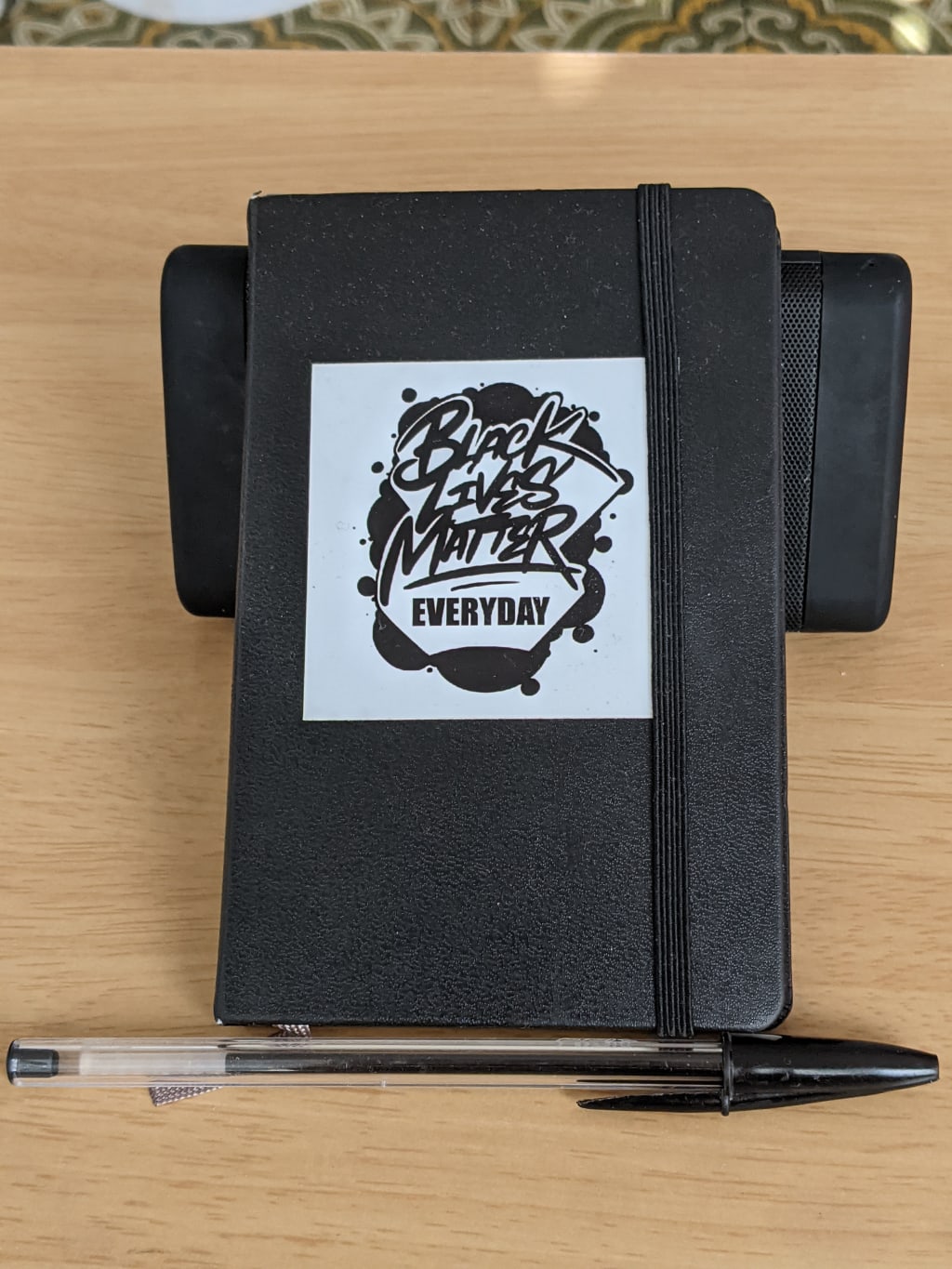
I have no doubt the greatest musician of all time toiled in obscurity on some plantation, the last note of her life crackling from her lungs under the boiling Deep South sun.
You don't become free in death; you become dead.
Still, in that moment, in that cessation of bondage, she must have felt so free. No longer would she have to fear massa cracka's whip. And she knew her song would carry on, though she never learned to read or write. That's because her fellow slaves sang for her on her death bed, sang for her when she was buried, sang for her when her granddaughter married, sang for her when that granddaughter escaped North, sang for her when the war was over and they were freed, they sang for her over and over until one day, in the back of church in a little Black book, a boy began to write.
I've never been much for church music. Gospel makes me feel dirty, like I shouldn't be hearing it on account of my atheist, blasphemist, pessimist lifestyle. But my cousin, Sherman, he grew up on the stuff and holds it in the highest regard. Sherm is a Black sheep among the darkest wool; autistic and withdrawn, our overtly affectionate family could never really understand him. We loved him and his idiosyncrasies, though, and his sitting down at the piano was always a welcome sight. Sherm could hardly talk, and his condition made socializing all but impossible for him. But man, could he sing. He'd sit down at that piano and make up songs, playing and singing back the music of our family. It was breathtaking, and the family would slowly gather 'round, tears in our eyes, just listening.
Sherm was smart, too. His mother insisted on keeping him out of the special classes. Not that it would've helped; a single mom with two other kids couldn't afford to send him to a school with any decent special ed teachers. Other than not participating in class, Sherm aced school. We had some classes together coming up and I'd sit next to him and copy him. He never wrote capital letters so I'd always have to go back and fix my own work.
I looked up to the kid. He found a way to make the world adapt to him; he passed notes to me when he knew the answer so he wouldn't have to say. Once everyone at school figured out our little system, I got to take classes with him. He was in all honors and sure my grades sucked, but I got to learn so much just by sitting with him.
We had to split up when I went to college, but I would text him every so often just to see how he was doin'. I'd get these one or two word answers back but it was better than nothing. Then one day, he didn't answer back. I called my mom and his mom and his sisters; no one had heard from Sherman. He'd gotten into this little music school up in Massachusetts so I collected my cousins and drove them up there. He'd missed a few classes and his professors were worried, too. We called the hospitals and the police. Finally, someone told us a body was down in the morgue.
He was so cold. Sherm had wandered into a jazz bar and sat in with a little trio. On the piano, Sherm seamlessly improvised along with the pros. That was until a Black Lives Matter protest passed by the bar. Hearing the voice of his people, Sherm began to play along and sing. Before he knew it, the protestors had stopped to listen. Gathered around the piano, the swell of their voices carried out into the street and more and more listened.
So did the police.
After they arrested him and tried to question him, they discovered he had no identification. Sherm learned how to drive, but preferred to wander with just his notebook, listening and taking notes to what he heard. When he wouldn't answer their questions, they started to hit him. When he still wouldn't, they didn't stop. Sherm died, scared and alone, for playing his music.
I took leave from school and stayed up there a while, marching with the people and collecting Sherm's things. On his computer I found a collection that stretched from Nina Simone to N.W.A to Nat King Cole. Under his mattress, I found a little Black book. On the inside cover, he'd written 'germ's songs'. All along, my quietest cousin had been paying attention; 'germ' was his alter ego, writing songs of protest incorporating all the musical traditions of his people.
I ran out of the room and down the hall. I asked all of his classmates, could they help me reproduce this music. The arrangements were complex but each one agreed to do their best. In the studio, I watched as artist after artist streamed in and out. Crowding around Sherm's notebook, they argued about notes and tempos and recorded and rerecorded and rererecorded each song until it was perfect. Word got out on social media and Black artists from all over the country asked to join the project. They called themselves 'germ's orchestra' and before long, they were on the final piece.
The night he died, it seems Sherm had written a song. The twelve minute jazz fusion number had a simple name; he called it 'reparations'. It was complex and dense, building from a single chord until the pages of his notebook were almost Black from his excited writing. The orchestra deciphered and interpreted for months; some began to call it a masterpiece. But it was unfinished. After yet another day crowded around the notebook, arguing and recording and rerecording and rererecording, I sent the orchestra home. I wandered the streets, listening as Sherm had that night. His birthday was coming up; he hadn't made it past twenty-one. I was distraught. We weren't gonna finish.
Then, a voice.
A little girl, her voice straining against the sounds of the street, against its own weakness, against something I couldn't see. I turned and looked at her. Little Black braids bouncing as she skipped down the street, holding her mother's hand. She apologized; her daughter was autistic. She couldn't talk, but she would make up songs and vocalize. I had found my missing piece.
The recording finished just in time. We announced on Sherm's birthday that 'germ's songs' would be released six months later, on the anniversary of his death. Sherm's mother used the money to start a scholarship, first for her little girls, then for any Black child with a disability who wanted an education. 'reparations' became one of the longest songs to ever top the charts. It played at the White House. It played in apartments. It played in churches. It played on the street. And when it played on the land of a plantation, deep in the South, folks could swear the very ground sang along.






Comments
There are no comments for this story
Be the first to respond and start the conversation.